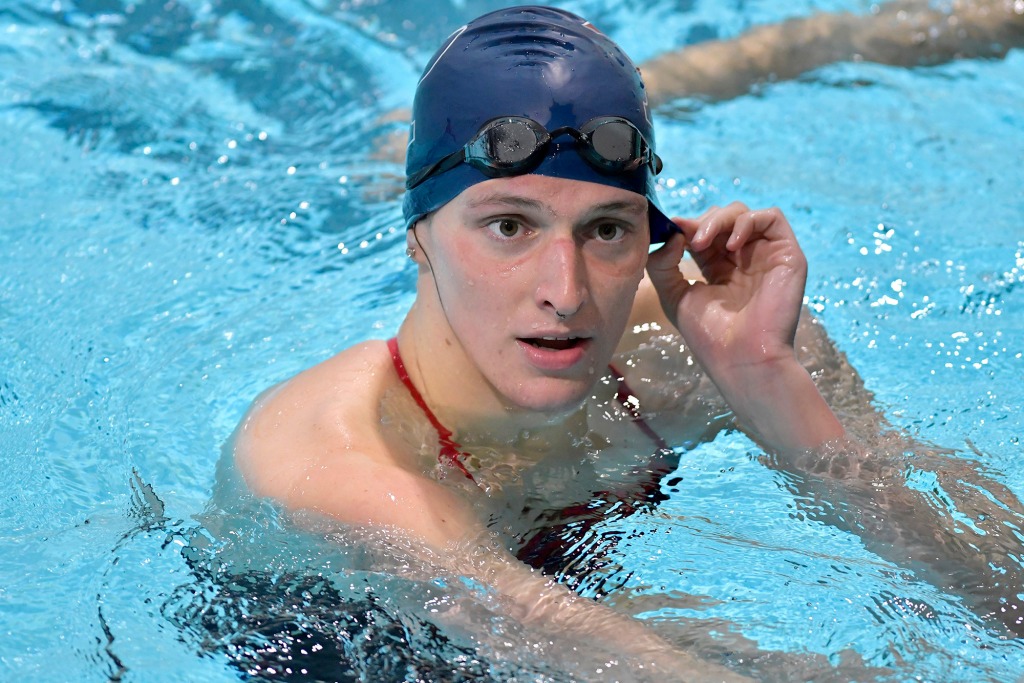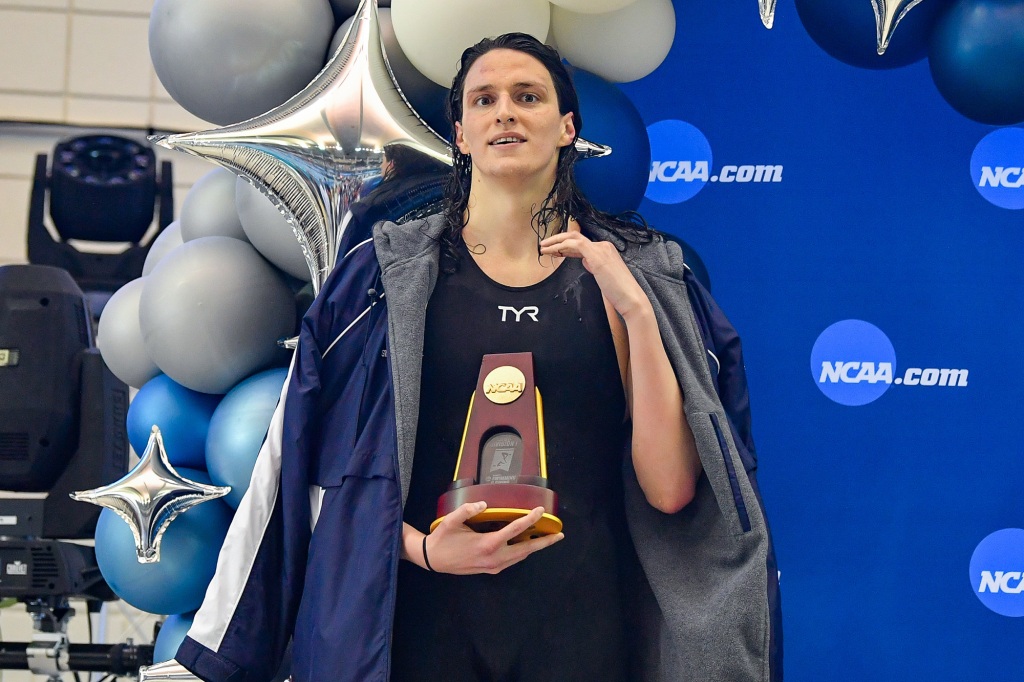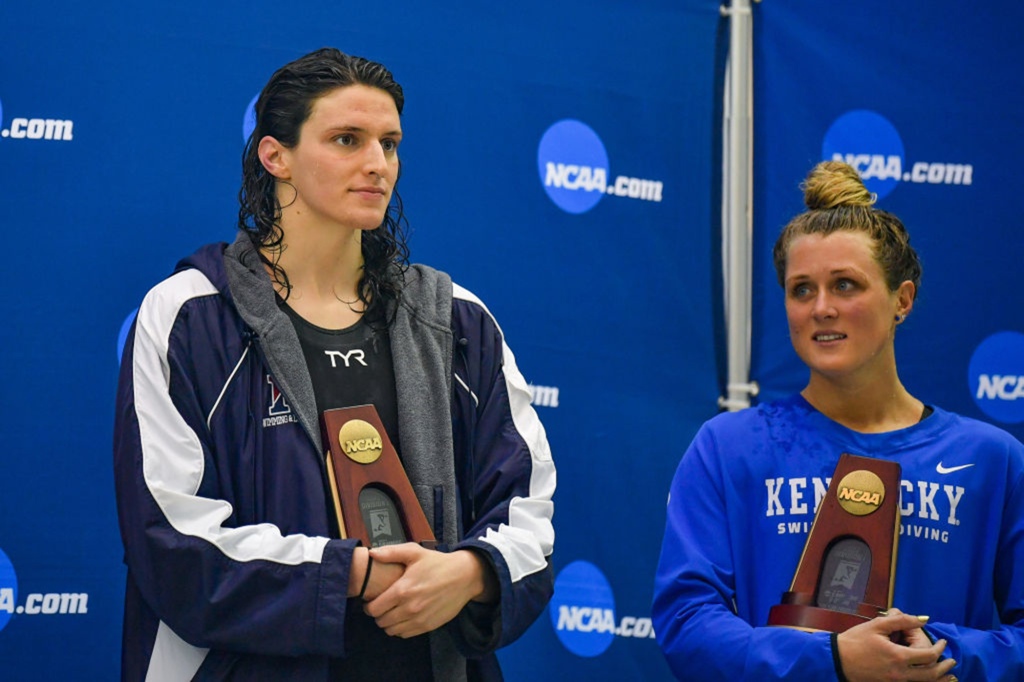More On: Transgender women
Transgender women will be banned from competitions after FINA votes to ban Lia Thomas
Starting Monday, the group that runs swimming around the world has made it so that transgender women can't compete in women's events.
Sunday, most FINA members agreed on a new "gender inclusion policy" that only lets swimmers who changed their gender before age 12 compete in women's events. The group also suggested a "category for open competition."
"This doesn't mean that people are urged to change their gender by age 12." Scientists say that if you change your gender after starting puberty, you have an advantage, which is unfair, FINA president Husain Al-spokesman, Musallam's James Pearce, told The Associated Press.
"They aren't saying that everyone should change by age 11. That's crazy. Most countries don't let you change at that age, and I hope you wouldn't be encouraged to. Basically, what they are saying is that people who have changed jobs can't compete without an advantage."
Pearce said that there are no transgender women competing at the highest levels of swimming right now.
But it seems like the ruling would keep University of Pennsylvania swimmer Lia Thomas from competing with the best.

The World Professional Association for Transgender Health just lowered the minimum age for starting hormone treatment for gender transition to 14. Some surgeries can now be done as young as 15 or 17.
FINA's new 24-page policy also called for a new category called "open competition." "A new working group will spend the next six months looking at the best ways to set up this new category," the organization said.
Pearce told the AP that the open competition would probably mean more events, but the details still need to be worked out.
"No one really knows how this will work out. "To figure out how it would work, we need to talk to a lot of different people, including transgender athletes," he said. "So it's not clear how that would work. The open category is something that will be talked about starting tomorrow."
At the organization's extraordinary general congress, the members voted 71.5 percent in favor after hearing from three expert groups: an athlete group, a science and medicine group, and a legal and human rights group. These groups had been working together to make the policy based on suggestions from the International Olympic Committee last November.

The IOC said that the focus should be taken off of individual testosterone levels and that proof was needed to show when there was a performance advantage.
Anne Lieberman of Athlete Ally, a nonprofit that supports LGBTQ athletes, said in a statement that FINA's new policy is "deeply discriminatory, harmful, and unscientific." She also said that it is "not in line with (the IOC's) framework on fairness, inclusion, and non-discrimination based on gender identity and sex variations."
Lieberman said, "The policy's eligibility requirements for the women's category will police the bodies of all women, and they can't be enforced without seriously violating the privacy and human rights of any athlete who wants to compete in the women's category."
FINA said, "We know that some people and groups may be uncomfortable with the use of medical and scientific language about sex and sex-related traits, but we need to use some sensitive language to be clear about the sex traits that justify separate competition categories."
In March, Lia Thomas became the first transgender woman in the United States to win an NCAA swimming championship. She won the 500-yard freestyle and made history.

Thomas said on ABC's "Good Morning America" last month that she wanted to swim in the Olympics. She also said "trans women are not a threat to women's sports" to those who say she has an unfair biological advantage that hurts the fairness of women's sports.
Thomas asked the University of Pennsylvania for a comment, but the school didn't answer right away.
The rules for transgender athletes in other sports have also been looked at.
Thursday, cycling's governing body changed the rules for transgender athletes, making them wait longer before they can compete and making the rules stricter.
The International Cycling Union (UCI) changed the transition period for low testosterone from one year to two years and lowered the level of testosterone that can be used. The time it took to change from being a man to a woman used to be 12 months, but the UCI said that recent scientific studies show that it takes at least two years for athletes to make "the expected adaptations in muscle mass and muscle strength/power."
-------













